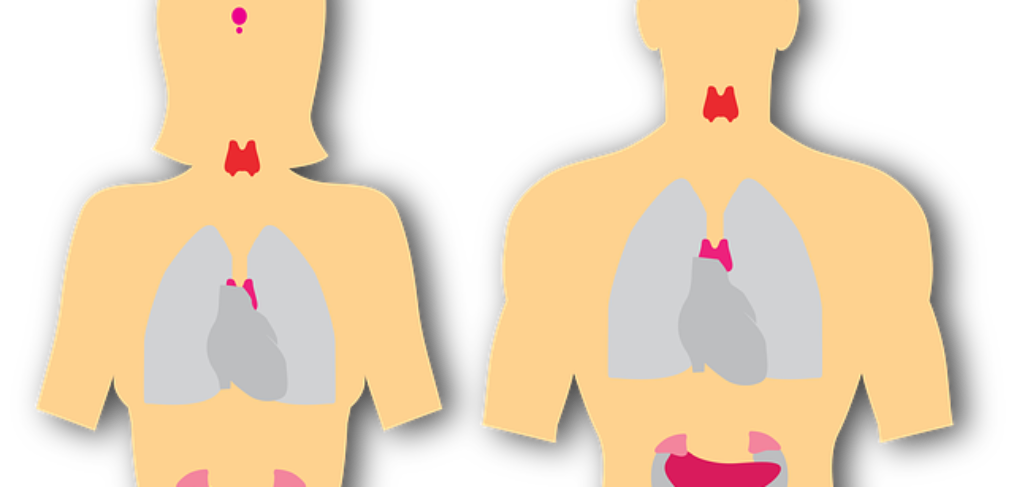Your thyroid matters! Sluggish digestion, lethargic immunity, stagnant detoxification, languid metabolism, lackluster moods, and torpid libido are all related to reduced thyroid function. This brief primer covers thyroid matters ranging from symptoms and lab testing to diet do’s and don’ts.
Why thyroid matters
Beyond regulating your energy and weight, your thyroid is an early indicator for deteriorating health – a sort of canary in a coal mine. Because this small gland is so sensitive to stress, toxins, and nutrient-poor food, it tends to begin lagging before other disease is detected.
Further, as much as 90% of thyroid dysfunction is due to autoimmunity. Left unchecked, it provides a pathway to other autoimmune conditions. Thyroid disease is therefore considered a gateway to further disease.
Tell-tale thyroid symptoms of low thyroid
Most people understand that weight gain and tiredness can be signs of hypothyroidism. You might even be aware that loss of the outer third of your eyebrow is another symptom of this condition. But did you know that feeling cold all over most of the time also may indicate low thyroid function? Other symptoms may include:
- Blaise emotions
- Chronic constipation
- Thinning hair
- Morning headaches that wear off as the day goes on
- Stiffness or all-over achiness
- Foggy brain
- Brittle nails and dry skin
What lab tests do and don’t tell you
The typical TSH test will tell you if your brain is stimulating your thyroid to make more thyroxine, also known as T4. In other words, does your brain perceive that you need more thyroid action? According to WebMD, a TSH higher than 4 mU/L is considered insufficient. Medline Plus says a TSH of 5 µU/mL indicates deficiency. Let’s take that a step further. To be optimal, your TSH probably needs to be closer to 2.5 mU/L.
Unfortunately, your brain may be satisfied with the amount of thyroid hormone long before other organs, such as your liver. Not only that, a TSH test does NOT tell you how much of that T4 is unbound, or free for use in the body. Nor will it tell you how much thyroxine you are actually converting to the active form of the hormone, known as T3, or triiodothyronine.
Further, a TSH test doesn’t measure how much T3 is being inactivated into Reverse T3, or whether you are making antibodies to your thyroid tissue. Thyroid antibodies are a clue to autoimmune thyroiditis.
To get all these measures, you need a full thyroid panel.
Foods that help or hurt
Creating thyroid hormone requires ample protein. Therefore, a high-carb diet can be detrimental. Beyond that, you need minerals to serve as “spark plugs” in the process of thyroid hormone synthesis. Critical minerals include iron, iodine, zinc, and selenium. A diet low in processed foods will serve you best here. Select nutrient-dense organ meats and seafood to optimize zinc, iodine, and iron. For selenium, you can try regular daily intake of a few Brazil nuts.
But that’s not all. Vitamins are critical, too, especially fully formed Vitamin A, or retinol. Although plant foods are rich in the beta carotene form of Vitamin A, organ meats and egg yolks are much better choices for retinol.
Because bromine, fluoride, and chlorine fill the thyroid’s iodine receptors, avoid baked goods with wheat flour, which is often “brominated”. Drink spring or filtered water that hasn’t been treated fluoridated or chlorinated.
Avoid soy unless it’s in a fermented form, such as miso, and also avoid high amounts of raw cruciferous vegetables. These foods or goitrogenic, meaning they can decrease the production or activation of thyroid hormone.


